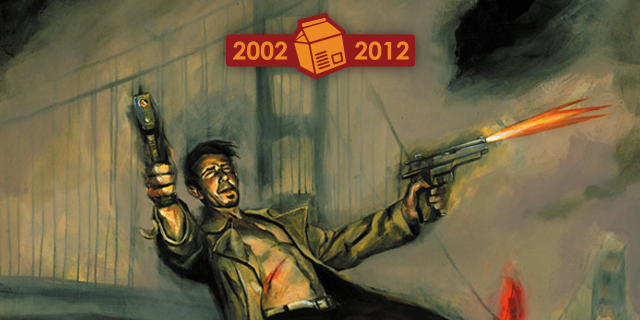
The twenty-sided die, or d20, is such an iconic symbol of pen-and-paper RPGs that this column was named in reference to it (or perhaps in reference to a Penny Arcade reference to it). Over time, an entire modular system has been constructed around it (aptly named “the d20 System”), releasing it from its origin as one of a half-dozen oddly-shaped dice in a standard Dungeons & Dragons kit and giving it a life of its own.
When I agreed to revisit this column for Snackbar’s ten-year anniversary, I knew that I would have to overcome one fundamental problem. You see… my preferred RPG system of choice, back when I had time for such things, doesn’t use d20s. Or indeed any dice at all that are not ten-sided (d10s).
Welcome to White Wolf’s The World of Darkness (WoD).
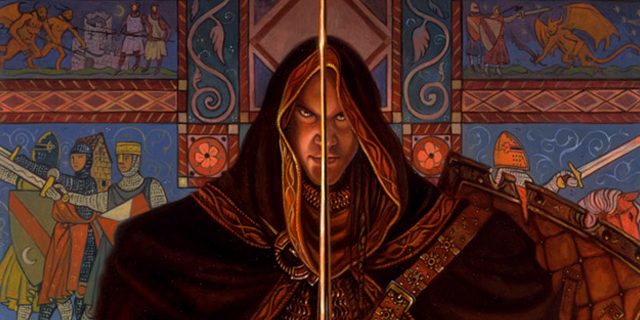
Anniversary profile
I Roll Twenties
Author: Roger Helgeson (2007), Chris Ingersoll (Anniversary)
A column about role-playing games, with a focus on the stories they can tell.
Of course, like most aspects of the RPG hobby, that system has been through more than its share of changes over the years, but the exclusivity of the d10s has been universal, as has an emphasis on character and storytelling over combat, exploration, and loot. The general themes are horror-related, and like most good horror the element of humanity is what makes it fascinating.
For those of you unfamiliar with the WoD, this is the family of games that includes groundbreaking titles like Vampire: the Masquerade, Werewolf: the Apocalypse, Mage: the Ascension, Wraith: the Oblivion and other such “Creature: the Event/Thing” titles, although all of these have changed names (and theme/content) since the last major revision. That revision excised the core system that was shared amongst these games and let it stand on its own as a generic (and mortal-oriented) World of Darkness, and then applied the supernatural sourcebooks in a similar way to how D&D applies campaign settings.
The system, as mentioned, emphasizes the character concept over raw statistics. But let’s get the numbers out of the way first. Each character has nine basic attributes, each one rated from one to five (higher = better). These attributes cover all the permutations of power, finesse, and resistance as they apply to physical, social, and mental categories (e.g., physical power = strength, physical finesse = dexterity, physical resistance = stamina).
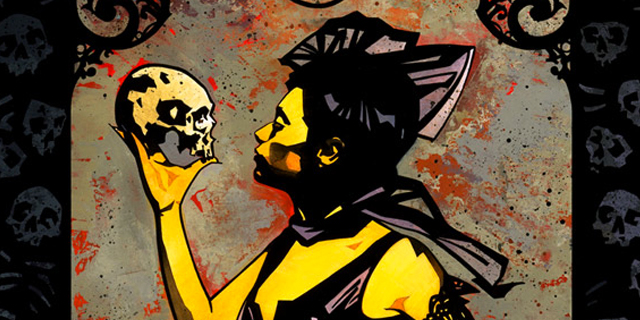
The character is further defined by various physical talents, social skills, and mental knowledges in a similar manner. It is worth noting that none of these ratings are determined randomly; character creation uses a system of points to be distributed amongst the player’s choice of primary, secondary, and tertiary priorities in each general category. You customize the character to your specifications right from the start.
When a roll is required, the gamemaster (appropriately enough called the Storyteller) determines the combination of attribute + skill required, which dictates how many d10s the player has to roll (“dice pool”). In the current system, all that is required for success is that at least one of those dice comes up an eight or higher. A single die thus obviously has only a 30% chance of success, but four dice raises that to about 75%, and those odds only go up as your pool increases.
Various difficulty modifiers can add or subtract dice from your pool, and it is even possible to still roll if you have been reduced to a pool of zero or less – although this “Chance Die” carries with it the possibility of Dramatic Failure (read: critical) should it come up a one, so be aware of the risks. Whether you’re on a Chance Die or a regular pool, rolling a ten (and in some cases nines or even eights!) allows you to re-roll that die for an additional success if the task in question demands more than just a simple pass/fail, and you can keep rerolling as long as you keep getting tens (or whatever) for some truly epic results.
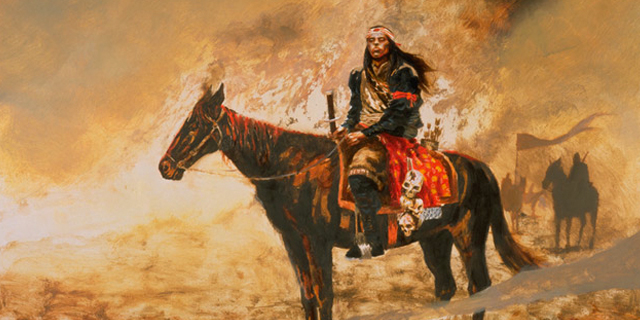
This system lends itself well to both extended actions (accumulating successes over a length of time) and contested actions (opposed successes cancel each other out, and the winner is the first to net a given number). It also allows for some player ingenuity for finding a route to success that best fits their character concept. That’s the gist of it, anyway. There are obviously permutations and complications too extensive to go into here, including everything combat-related, but everything distills down to “base dice pool plus/minus modifiers versus a target of eight or more on at least one die” and “more dice = better chances at success”.
So with that out of the way, let me discuss two specific sourcebooks for the World of Darkness that particularly appeal to me.
Imagine being kidnapped by a powerful supernatural being and basically being enslaved by them in their world. Over time, that world twists you and reshapes you in subtle ways. Eventually, you manage to figure out a way to escape, desperate to return to your home. Against all odds, you manage to get there… only to find that you have changed so much that you redefine “outsider” to the point where you yourself are no longer considered human.
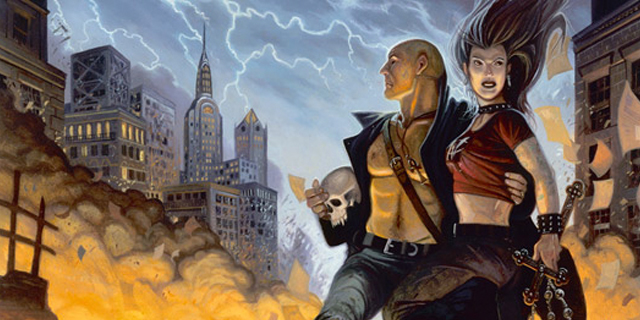
You are now a Changeling, a refugee from Arcadia (essentially Faerieland, in the classic and horrific Grimm sense). To make matters worse, someone … or something… has been living your life in your place while you were gone, and it is even possible that you have been gone much longer (or much shorter) than you thought you were. That is the general backstory of every character in Changeling: the Lost, a setting that emphasizes alienation, constant fear (you don’t think your former Keeper is going to just let you go, do you?), and even perception of reality. How you adapt to your new life and what you do about your old one, if anything, is only the first step. Not going insane in the process is just one of the tricky parts.
As you might have surmised, the World of Darkness is not a nice place to live. Vampires, werewolves, ghosts, and all other manner of crazy supernatural monsters could be lurking in any shadow. Mortals clearly have it tough here, although there are ways to cope. Heck, you might not even know they exist, as they tend to prefer being hidden whenever possible and the human mind tends to gloss over things it doesn’t (want to) comprehend anyway. Which is fine for adults… but what about kids?
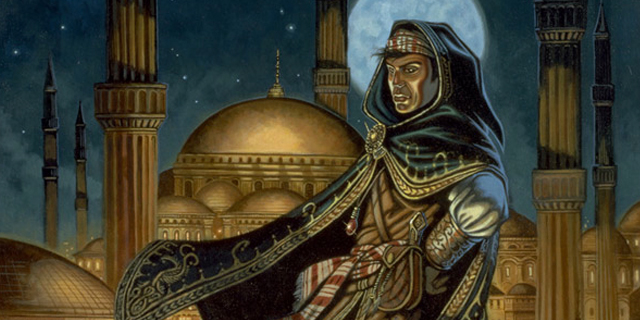
What if the heroes of your story are all in middle school (or younger)? World of Darkness: Innocents takes that premise and explores it in a general WoD setting. Think about the creepy stuff you had to deal with when you were a kid, like a “monster” under your bed or the “haunted” house down the block and then consider what that would be like in a world where that stuff could be real… and coming after you.
Even though I don’t have the time to get together with friends to really explore these worlds, I love the concepts contained within them. I have a ridiculous amount of Changeling books for someone who hasn’t actually played them (my last session was before the revision, and Changeling was VERY different then). Because that’s the other thing that the World of Darkness teaches you about: hope. One day, I hope to once again have the time. And when that day comes, I will be ready.



















